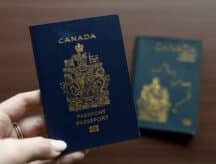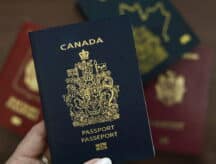Over 300,000 people became Canadian citizens in 2023
According to data from Immigration, Refugees and Citizenship Canada (IRCC), in 2023, more than 354,000 people became Canadian citizens in more than 3,000 citizenship ceremonies across the country.
Schedule a Free Canadian Citizenship Consultation with the Cohen Immigration Law Firm
In 2022, 375,413 people became citizens of Canada, marking a notable surge in the nation’s naturalization trend over the preceding two years.
To put it in perspective, the number of new Canadian citizens in 2019 was 250,513, 110,989 new citizens in 2020 and 137,133 in 2021.
How is IRCC reducing citizenship backlog?
IRCC has been working towards their goal to process 80% of citizenship applications within service standards. In January 2022, the percentage of backlog of citizenship applications was about 46%. As of November 2023, IRCC reduced the application backlog to 20%, which represents IRCC’s target number.
IRCC has reduced the backlog by:
- Launching a new platform for applicants to complete the citizenship test online
- Introducing virtual citizenship ceremonies
- Launching online application processes for most clients looking to apply for citizenship, get straightforward proof of citizenship or search citizenship records
- Creating an online citizenship application tracker to help clients stay up to date on the status of their application and any required next steps
- Hiring more employees to speed up processing across our business lines
What is the pathway from permanent residency to citizenship?
Once in Canada, to become a Canadian citizen, there are certain criteria one must meet before applying.
To be eligible for Canadian citizenship as a permanent resident, one must:
- Be a permanent resident of Canada;
- File taxes if necessary;
- Pass a Canadian citizenship test (if between the ages of 18-54);
- Prove language skills (if between the ages of 18-54);
- Meet Canada’s physical presence requirements
IRCC allows a permanent resident to apply for Canadian citizenship only after they have been a physical resident of Canada for three years (1,095 days) out of the five years immediately preceding the application for citizenship.
Only the five years preceding the date of the application are taken into account. Within that five-year period:
- Every day spent in Canada as a permanent resident counts as a full day.
- Every day spent in Canada before becoming a permanent resident as a temporary resident or protected person counts as a half-day towards meeting the physical presence requirement for citizenship, up to a maximum credit of 365 days.
If the applicant became a permanent resident less than five years ago, the calculation period starts on the date that he or she became a permanent resident.
Time spent serving a sentence in Canada does not count towards the physical presence requirement (i.e. time spent in a prison, penitentiary, jail, reformatory, probation and/or on parole cannot be counted as physical presence).
The benefit of Canadian citizenship is that unlike permanent residents, Canadian citizens have no residency obligations. In addition, Canadian citizens also receive Canadian passports and entitled to vote in federal, provincial and municipal elections.
Canadian citizens cannot lose their status unless it was obtained through material misrepresentation.
Schedule a Free Canadian Citizenship Consultation with the Cohen Immigration Law Firm
- Do you need Canadian immigration assistance? Contact the Contact Cohen Immigration Law firm by completing our form
- Send us your feedback or your non-legal assistance questions by emailing us at media@canadavisa.com






